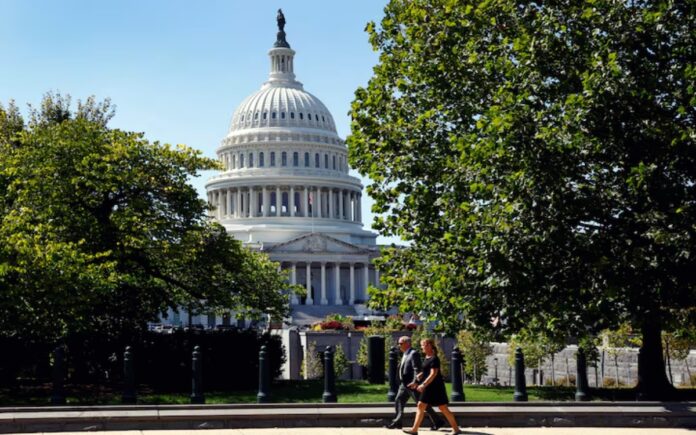Washington: The Republican chair of the House of Representatives’ select committee on China, Representative John Moolenaar, emphasized on Wednesday that the committee’s foremost goal is to introduce legislation restricting U.S. investment in China. This initiative aims to prevent investors from “funding our own demise.”
“We have to have an outbound investment regime that basically says ‘No investment in these businesses that are on some kind of a list,’ that says ‘We shouldn’t be helping the Chinese military, we shouldn’t be supporting genocide,'” Moolenaar stated during a panel discussion at the American Enterprise Institute. He further declared, “That’s probably our number one priority right now. We are actually funding our demise.”
A committee spokesperson clarified that “genocide” pertains to China’s alleged treatment of the Uyghur minority in Xinjiang.
In response, the Chinese Embassy in Washington firmly opposed what it termed the “U.S. overstretching the concept of national security and abusing state power to go after Chinese products and companies.” The embassy asserted that China would “continue to firmly protect the legitimate and lawful rights and interests of Chinese companies.”
Moolenaar’s statements suggest that Congress may reinvigorate long-sought restrictions on U.S. investments in China, a topic that has encountered significant challenges in Washington. A proposal to limit outbound investments was removed from the Chips Act prior to its enactment in 2022. In August 2023, President Joe Biden issued an executive order granting the Treasury Department the authority to bar or restrict U.S. investments in Chinese entities across three sectors: semiconductors and microelectronics, quantum information technologies, and certain artificial intelligence systems.
However, the rules intended to implement that executive order, proposed in July, have yet to be finalized, and the Treasury Department did not respond to inquiries regarding their status. Moolenaar mentioned that House Speaker Mike Johnson “would like to have something before the end of the year,” although Johnson’s office did not provide comments on the matter.
Also Read | Russia Updates Nuclear Doctrine: Massive Air Assault May Trigger Retaliation
The United States and other Western nations have imposed sanctions on Chinese officials for human rights violations in Xinjiang, which the U.S. has labeled as genocide. China, however, refutes these claims, denying allegations of abuses and characterizing the facilities in Xinjiang as vocational training centers designed to combat religious extremism.
Moolenaar specifically identified certain Chinese companies he believes pose national security threats, including Shanghai Zhenhua Heavy Industry Co. (ZPMC), which was highlighted in a recent committee report. He pointed out that U.S.-bound cranes manufactured by ZPMC, which dominate 80 percent of ship-to-shore cranes at U.S. ports, contain unauthorized cellular modems, creating a “significant backdoor security vulnerability.”
Also Read | Australia Advises 15,000 Citizens to Exit Lebanon Over Airport Closure Fears
“ZPMC could disrupt U.S. maritime equipment and technology at the request of the Chinese government, including during a conflict over Taiwan,” he warned, referring to the democratically governed island claimed by China. Moolenaar labeled the company a “loaded gun.”
Neither ZPMC nor the Chinese embassy in Washington immediately responded to requests for comments regarding these security concerns, though ZPMC has previously stated that it does not pose a cyber security threat.



